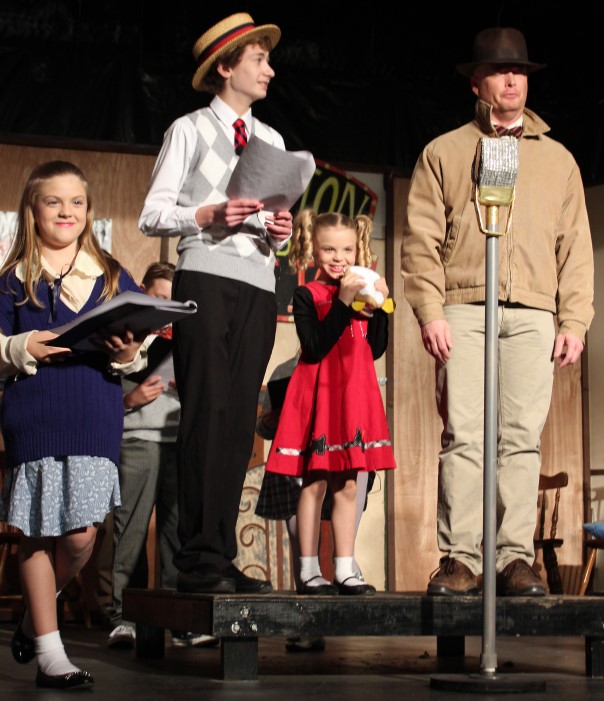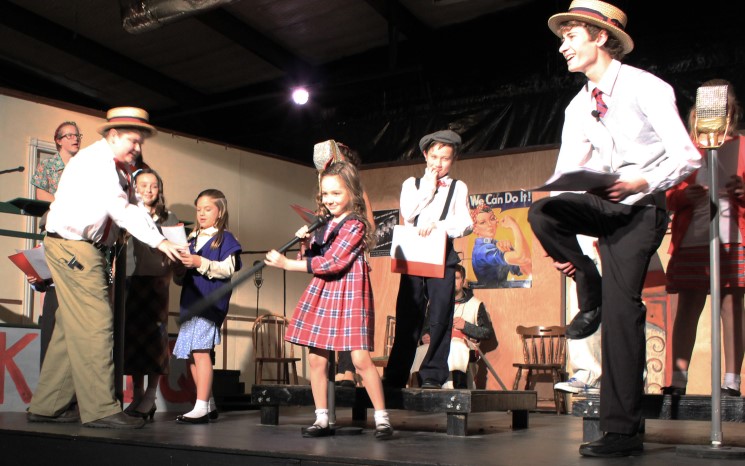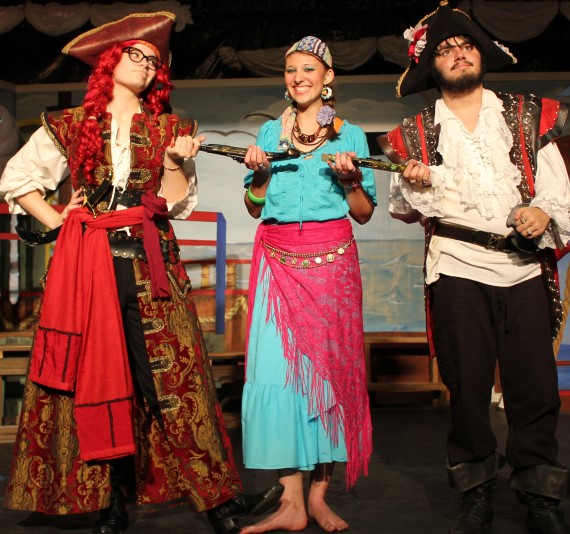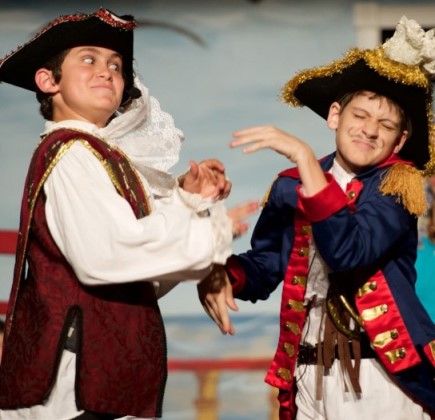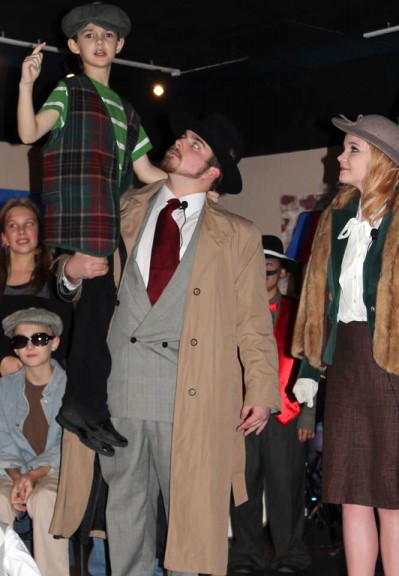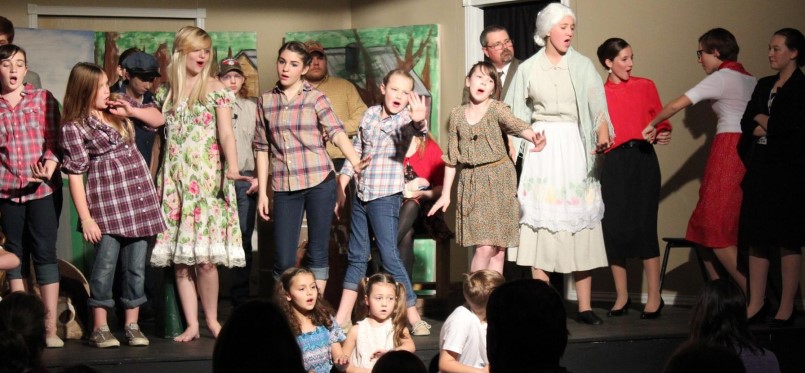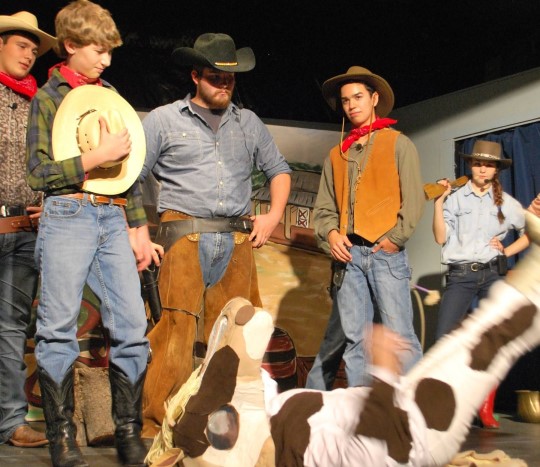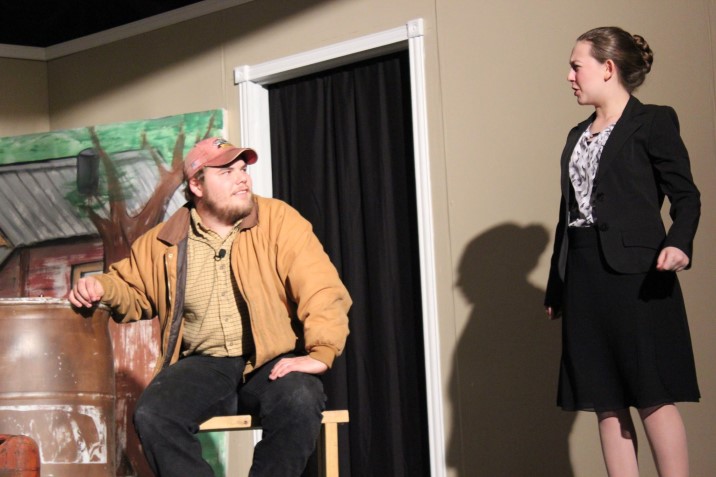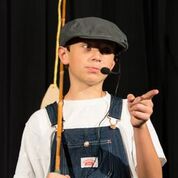
An Appalachian Tale
Writing scripts for the stage, writing lyrics for songs, staging scenes, and directing actors are all marvelous exercises for writing of any sort, but especially for fiction. It will develop your dialogue skills and strengthen your ability to visualize and “direct” a scene for a novel or, in my case, historical fiction. Lyrics are poetry ~ they demand careful word choice and good rhythm. So, having trouble with a scene? Stage it! Written down or just played out in your head, it may prove quite helpful. And it will fuel your imagination!
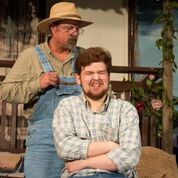
I ain’t dead!
As a playwright, my material has been aimed primarily at amateur youth, mainly teenagers, but also class and cast members from 7 to 10 and occasionally as young as five, with adults mixed into a number of our productions. I actually write for an adult audience, but in a family-friendly manner to appeal to a broad age range and to provide young actors and neighborhood families entertainment that they can all relax and enjoy. In all of our productions over the years, the formula has proved to work well.
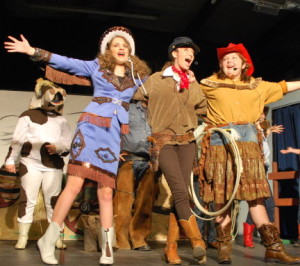
From “The Girl I Left Behind Me”
Musical comedies are my genre, in what I term a “mini-Broadway” style. The original music has always been live with a multi-instrument band, in styles ranging from pop-rock to folk to jazz to classic Broadway. I have never written music or scripts “for kids.” I always set a high bar, and they reach for it.
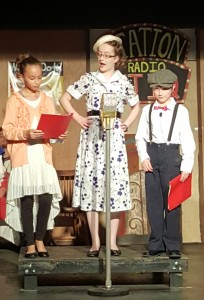
Small-town 1943 radio show from “It Happened One Knight”
Being a history nut and believing strongly in an appropriate level of cultural literacy, I enjoy taking our casts on trips back in time. Most young people today (and a growing number of parents) don’t know much about what it was like here at home during the era of radio and soda fountains and World War II, or in the era of jazzy private-eye mysteries, or on the prairie or “back east” in the late 1800s, or in the Appalachians or Shakespeare’s England or New York City in 1955. Ever try to teach today’s teens about phones that dialed and were wired to the wall, or manual typewriters, or an office with conservative skirts and high heels and no computers? They don’t have a clue. Guys don’t have suits anymore and they don’t know what to do in one! But they all really enjoy learning new things and that’s what makes it fun!
Writing scripts has certainly helped me with dialogue in a novel, and writing music has helped put rhythm in my prose. The stresses and pressures of writing, directing, and producing my own material has greatly enhanced my understanding of the incredible daily challenges faced by Shakespeare and his acting company. It’s a hard-won and fatigue-laden perspective not many possess. But, of course, my experiences are no match for what Shakespeare faced on a regular basis. And I’ve never had to dodge the plague year after year!
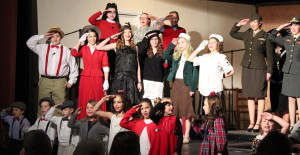
A patriotic opening number
I want to thank the man from Stratford for all of his pioneering confidence, determination, and genius. I read Macbeth in high school as an assignment, but I chose to take two semesters of Shakespearean studies in college and that began my appreciation for his works. After that, it was Kenneth Branagh’s films that inspired me to return my attention to Shakespeare and write a 7-song musical comedy about a secret, lost manuscript. How fun and rewarding it is to be playing with the band during a performance and hear a toddler behind me utter a quizzical, “Shakespeare?” Now, there’s an early introduction to a worthwhile cultural influence! How could I help but smile!
It has indeed been a privilege to facilitate young people enjoying themselves on the stage and discovering that they really can conquer the quivering knees and put on a big, complex production in front of hundreds of people and earn a genuine, standing ovation!

